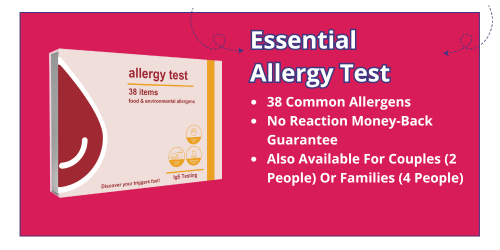It’s quite common to have a tree nut allergy – somewhere between 0.5% and 1% of Americans are allergic to tree nuts – and while it’s only sensible to avoid these nuts if you’re allergic, there is also the lesser-mentioned risk that comes with having a tree nut allergy. Nutrient deficiencies. Nuts are highly nutritious, most of them boast omega3’s and 6’s, vitamin E and magnesium. And while tree nuts can be highly dangerous to those who are allergic, deficiencies in these vital nutrients can prove to be almost as disastrous.
Most Common Nutrients Found in Nuts
Magnesium
Magnesium is vital for bone health and has also proven beneficial in fighting depression, preventing type 2 diabetes and lowering blood pressure. Low magnesium intake is associated with chronic inflammation – which is associated with many other health issues. If you’re living with a nut allergy, alternative sources for magnesium include mackerel, spinach, dark chocolate (min, 70% cocoa solids) quinoa and pumpkin seeds.
If you still struggle to get your daily recommended intake of magnesium, you can supplement with magnesium supplements. They come in various forms, including magnesium citrate, glycinate and carbonate. Be sure to consult your doctor before taking any supplements.
Omega 3’s
Omega 3 fatty acids are polyunsaturated fats that your body can’t produce on its own. Because of this, omega 3 is considered an essential fat that must be consumed through the diet. Omega 3’s are another nutrient that can help fight against anxiety and depression. Studies have indicated that people who consume omega 3’s regularly are less likely to develop depression. One study even found EPA (one of the 3types of omega 3’s) to be equally as effective in treating depression as a common antidepressant drug.
Another well-known benefit of omega 3’s is fighting against inflammation. Long term inflammation can contribute to common killers like heart disease and cancer. Various studies have shown a connection between higher omega 3 intake and lower levels of inflammation.
Vitamin E
Vitamin E is known for reducing oxidative stress, helping with wound healing and contributing to general skin health. It’s also vital in most daily processes in the body as cells use vitamin E to interact with one-another.
Nuts may be a good source of vitamin E but you can still get plenty in your diet while staying away from them. Foods with plenty of Vitamin E sunflower seeds (and oil), goose meat, avocado, mango, rainbow trout, butternut squash and kiwi. In truth, most foods have vitamin E in them to some extent, but it doesn’t hurt to seek out those foods with higher content.
Living with a tree nut allergy doesn’t mean you’re doomed to become deficient in these nutrients. With proper consideration and thoughtful meal planning, you’ll be perfectly fine and healthy. Just be sure to incorporate some of these alternative sources into your diet and you’ll reap the benefits of these disease-fighting vitamins and minerals. If you are unsure whether you are allergic to tree nuts you can take our home allergy test and find out. It covers 35 different allergens, including many tree nuts.







